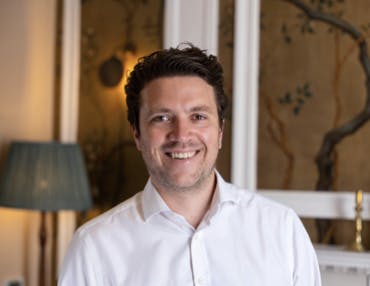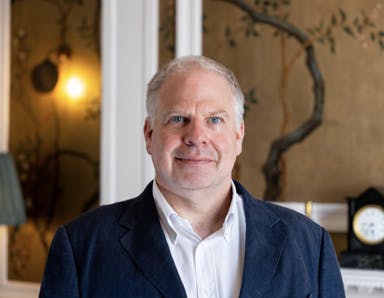QVentures and MongoDB Partner to Support the Next Generation of B2B SaaS Founders
No matter the industry, every startup begins with the same thing — an idea.
The challenge is taking that idea and manifesting it into the real world with real world customers. To build a highly scalable and successful venture you need the right funding partner. Every startup needs investment, but what founders must understand is that what is truly paramount to their future success is finding the right funding partner who will be a value add, and not just a capital injection. VC’s such as QVentures fit that mold of being a value addition to the success of a startup’s journey.
QVentures is a venture capital firm that provides direct investment opportunities and fund management to take companies from Seed to Series B. Together, MongoDB for Startups and QVentures offer prospective companies their best path forward towards becoming successful.
MongoDB’s Startup Partnership Manager Julian Busch spoke with QVentures’ Head of Origination Alex Cochand and Managing Partner Robert Walsh to discuss their company and its partnership with MongoDB for Startups.
What is your overall mission at QVentures?
Alex Cochand: Our mission is really twofold. From our perspective, one of the major reasons that businesses fail is through a lack of funding. And really that's a discovery problem. Those companies struggle to find interested, active, and supportive investors that buy into their mission. And we support that discovery.
Robert Walsh: The mission of QVentures is to work very closely with our investors, who are family offices and UHNWIs, and bring them together with entrepreneurs and founders of businesses between the levels of seed to series B. We very much focus on looking at tech companies for the next generation of investments. The family offices we work very closely with are often the first generation investing into venture capital and are able to pass on their experience to support founders in ways outside of capital.
Do you have an investment thesis when investing in startups?
Walsh: Our thesis is to invest into enterprise SaaS, marketplaces, B2B enterprise SaaS, and B2B consumer tech businesses that are highly scalable with next generational founders.
What advice would you give founders when thinking about fundraising with a VC?

Cochand: Start fundraising early. Everyone thinks that it’s going to be a very quick process, you're going to meet the investor of your dreams, and you'll have cash in your bank within a couple of weeks. The reality is that no matter who you are and no matter how great your business is, it always takes longer than you want. There's always more process. There are always hiccups. And you need to make sure that you have more than enough runway to make it through to the end of your fundraise.
Are you seeing trends or frequent mistakes that founders make when engaging QVentures?
Cochand: Selling the product rather than the business. You sell individual functionalities of the thing that you're building because that's what you're doing day-to-day. Your eyes are directly on building out the product that you want to take out to the market. Instead, when you're speaking to investors, you need to be pitching the mission, the business, and what the opportunity for scale and growth is.
Walsh: Being a founder is very difficult. Mistakes are something that I don't think is a fair statement. I would say, we do see trends. We see people who have ideas that might not be good businesses to invest in and who can become very frustrated with that. More importantly, we look for is industry leaders, who are looking to bring technology into new markets.
What value do corporate partnerships, like with MongoDB for Startups, bring to the founders in your portfolio?
Cochand: We see a huge amount of value in partnerships. It allows us to take the value-add that we offer to our startups to a completely new level. We're very good at the fundraising piece, and that's where we offer our value to the startups that we work with. Through partnering with companies like MongoDB and others, we're able to take that to the 10x.
Walsh: What surprised me about our initial partnership, is that companies at various stages in their growth journey are engaging with MongoDB. We’ve seen multiple companies from our Pre-Seed Fund find great value in MongoDB’s services, as well as our portfolio companies who are at later stages. This shows that there's a value in this technology.
So focusing again on startup founders, building companies from scratch, finding value in the MongoDB platform, what role does data play in that space?

Walsh: Data is a very important piece of the puzzle when you're evaluating a company, because there isn't that much real IP in the idea. It's how you track it, and it's quite frankly execution, and what can you do to learn off of that data. A founder who doesn't use data is a founder who might miss something.
Cochand: If we look at where the biggest technological changes are coming from, where the real value is being driven at the moment, a lot of that is coming through technologies, particularly in the ML and AI space. And what drives those, and what enables you to differentiate, is through proprietary access to data. And that's where the real value is with that. If you can mine it in a way that it's accessible and usable, and store in a way that you can then easily access and run your models off of, you're always going to be a step ahead of your competition.
Where do you see QVentures in 10 years or do you predict any macro changes in the VC landscape?
Walsh: QVentures in 10 years will probably have several billion of assets under management. And I also see the venture capital industry here changing tremendously due to the macro themes that are following the US, such as pension funds will start entering into macro. If you think of the amount of long duration and high yielding assets, I see venture capital following the private equity move of the 90s. So if you look at the KKR and Apollo or anything like that you're going to see QVentures as part of that next wave.
Cochand: Where we want to take QVentures in the next 10 years is becoming a hub for access to the venture capital and the tech community for predominantly family offices and ultra high net worths. No matter how they want to invest, no matter how they want to interact with startups, they can come through QVentures for that. If they want to come through a fund structure, if they want to invest directly into singular businesses, or if they want to look at things like venture debt or managed accounts, we have a product offering that we can pass out to them.
|
Takeaways for Founders: Start fundraising early “Everyone thinks that there's going to be a very quick process. You're going to meet the investor of your dreams, and you'll have cash in your bank within a couple of weeks,” Cochand said. “The reality is that no matter who you are and no matter how great your business is, it always takes longer than you want. There's always more process. There are always hiccups. And you just want to make sure that you have more than enough runway to make sure that you make it through to the end of your funding event.” Do your own VC diligence prior to engaging Founders should always do their diligence prior to engaging VC’s. Understand the investment thesis of a VC before reaching out. For example, as Robert stated, “Our thesis is to invest into enterprise SaaS, marketplaces, B2B enterprise SaaS, and B2B consumer tech businesses that are highly scalable with next generational founders.” If you are a CPG startup, QVentures would not be a likely investment target for you to engage with. Do not waste your valuable time or the VC’s by reaching out even when they do not invest in your space. When pitching VC’s, don't sell your product, sell your business “Common mistakes that I see founders make when they come to fundraise is selling the product rather than the business,” Cochand said. “You sell individual functionalities of the thing that you're building because that's what you're doing day to day. Your eyes are directly on building out the product that you want to take out to the market. Instead, when you're speaking to investors, you need to be pitching the mission, the business, and what the opportunity for scale and growth is.” |
|
Takeaways for VC’s: Build value add partnerships with corporations who can fill knowledge gaps in your team “We see a huge amount of value in partnerships. It allows us to take the value-add that we offer to our startups to a completely new level,” Cochand said. “We're very good at the fundraising piece, and that's where we offer our value to the startups that we work with. Through partnering with companies like MongoDB and others, we're able to take that to the 10x.” A prediction on the shifting VC Landscape: “I also see the venture capital industry here changing tremendously due to the macro themes that are following the US, such as pension funds will start entering into macro,“ Walsh said. “If you think of the amount of long duration and high yielding assets, I see venture capital following the private equity move of the 90s. So if you look at the KKR and Apollo or anything like that you're going to see QVentures as part of that next wave.” When looking at potential investment opportunities, VC’s should look for founders who understand and leverage data “Data is a very important piece of the puzzle when you're evaluating a company,” Walsh said. “Because there isn't that much real IP in an idea. It's how you track it, and it's quite frankly execution, and what you do to learn off of that data. A founder who doesn't use data is a founder who might miss something.” |
Don't be that founder not leveraging their data. Sign up for the MongoDB for Startups program today.